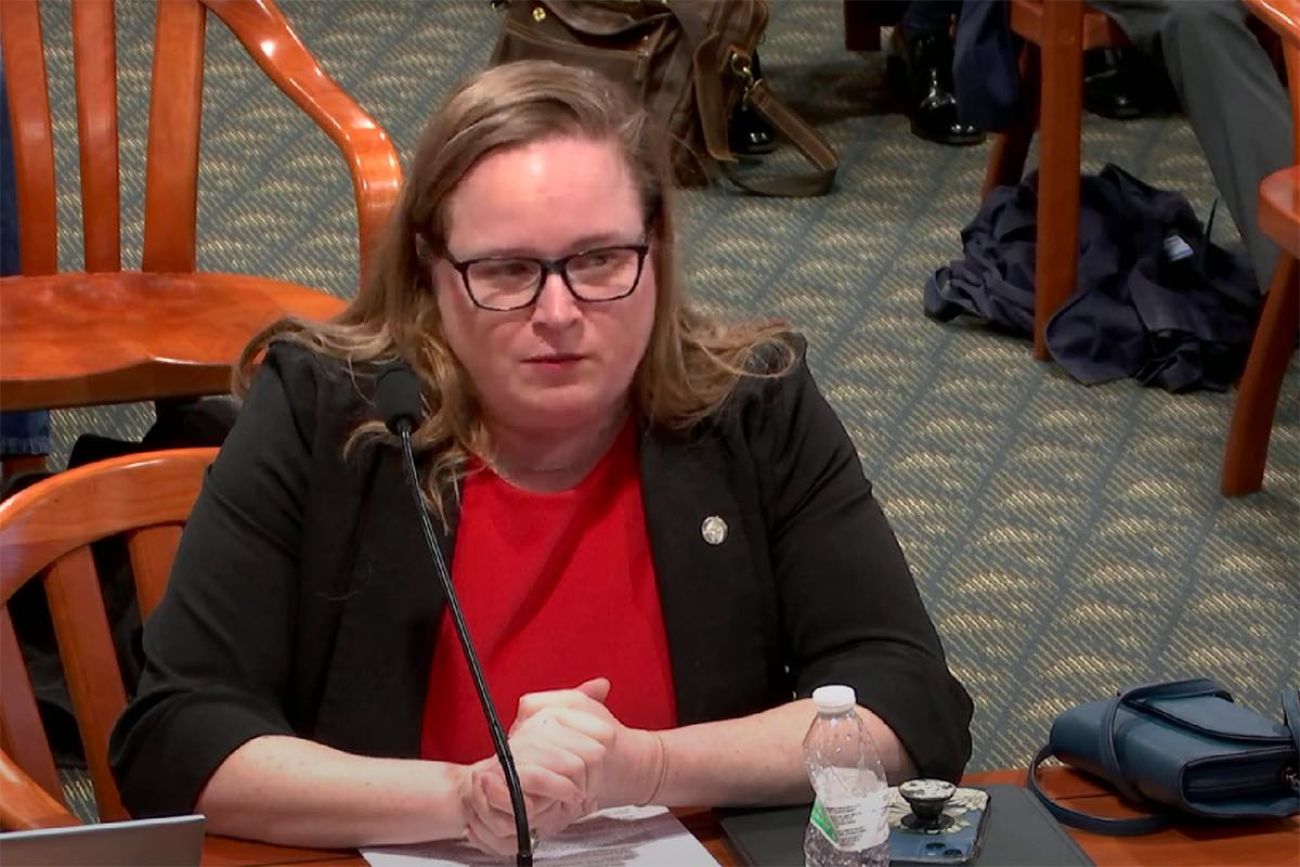Michigan lawmakers begin school safety debate long after Oxford shooting

- Facing criticism from the father of an Oxford shooting victim, Michigan lawmakers began talks on long-stalled school safety package
- The legislation calls for stronger threat assessments, tip sharing and the creation of a state-level school safety commission
- Lawmakers did not vote on the bills ahead of a legislative spring break
LANSING — More than two years after a deadly shooting at Oxford High School, Michigan lawmakers on Tuesday began debating — but did not advance — a series of proposed school safety policy changes.
A long-planned hearing in the House Education Committee followed criticism from the father of a child killed at Oxford, and complaints from House Republicans, that the legislation has been delayed by politics.
In the interim, the state has dedicated more than $500 million to school safety and mental health resources since 2022.
Related:
- Michigan school safety bills stalled: ‘It’s inexcusable,’ Oxford dad says
- Oxford shooting probe: Three takeaways to improve Michigan school safety
- Michigan boosts K-12 special education, teacher hiring, mental health funds
“These bills today, and the ones to follow, aren’t the fix that’s going to take care of all of this,” said Rep. Luke Meerman, R-Coopersville. “But I do think these bills get us down the road a lot further than we are today, and will be important to helping us maintain school safety.”
Among other things, the bipartisan bills would require schools to create a threat assessment team responsible for monitoring, assessing and investigating concerning behavior. The team would also need to determine if and when to alert law enforcement.
Meerman and Rep. Kelly Breen, D-Novi, have led the charge on this school safety package for the better part of two terms now. Variations were introduced last year but did not make it far in the legislative process.
Lawmakers gave various reasons for the slow pace, including wanting further stakeholder feedback on the bills and waiting for a final incident report regarding the Oxford shooting.
But they said Tuesday’s hearing represented the culmination of months of behind-the-scenes work on a package meant to mitigate and prevent violence in Michigan schools.
“We know, now, that when our kids are not physically or mentally secure, they cannot learn academically,” Breen said. “We also know that violence is not limited to gun violence. It’s not limited to schools. It is a multifaceted problem, and it will require multifaceted solutions.”
Lawmakers did not propose any gun reforms as part of the package, she added, because “it was clear that we could not leave politics out of any discussion that involved firearms.”
At Oxford High, authorities say a 15-year-old student had exhibited warning signs before he used a pistol to kill classmates Hana St. Juliana, Madisyn Baldwin, Tate Myre and Justin Shilling. He was later sentenced to life in prison without parole.
The House committee did not vote on the school safety package Tuesday after sponsors proposed various changes, and immediate action is not expected because lawmakers are leaving town for spring break. But the debate, which focused on five bills in the larger package, was wide-ranging.
One bill would create the School Safety and Mental Health Commission and outline the procedures and duties of the group, as well as who could serve on it. Another requires several parties – including police and an intermediate school district’s emergency and safety managers – be notified of tips sent to the OK2Say program, if relating to a school within their district.
Another three bills would amend state school code to require the Michigan State Police develop a standard response terminology for a threat assessment plan by July 1. That plan would be used to then tell schools what terms they should use in response to certain safety situations, such as the phrases “lockdown” or “shelter in place.”
A school board, public school academy board of directors or a nonpublic school governing body would then need to adopt and implement that plan during the 2024-25 school year. The boards would also need to put together a behavior and threat assessment and management team, and establish who can serve on it, by July 1.
Melissa Kree, school psychologist at Oxford Community Schools, said she was supportive of the focus on threat assessment policy, saying it had the potential to save lives.
“This is the first step,” Kree said. “The district choosing a threat assessment model and facilitating a wide-scale training of multidisciplinary teams across the district – it needs to be a priority for it to work.”
See what new members are saying about why they donated to Bridge Michigan:
- “In order for this information to be accurate and unbiased it must be underwritten by its readers, not by special interests.” - Larry S.
- “Not many other media sources report on the topics Bridge does.” - Susan B.
- “Your journalism is outstanding and rare these days.” - Mark S.
If you want to ensure the future of nonpartisan, nonprofit Michigan journalism, please become a member today. You, too, will be asked why you donated and maybe we'll feature your quote next time!




